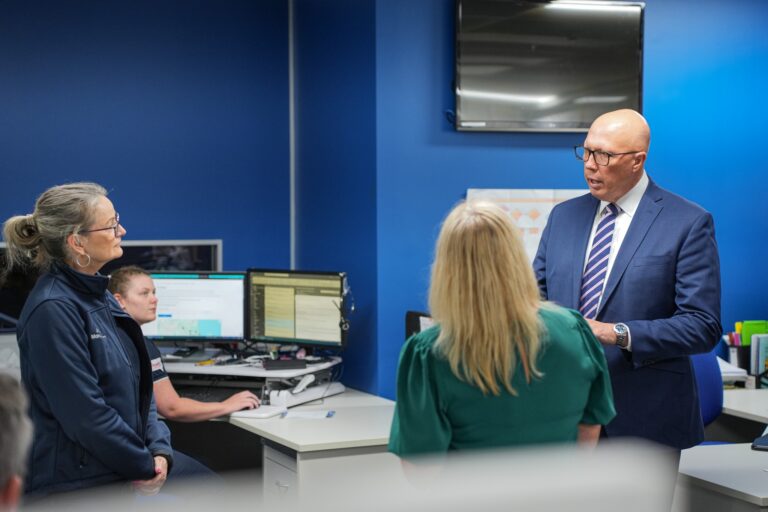
By JOAN HENSON
Students worldwide have urged adults to strike on September 20, for extensive government investment in job guarantees for fossil fuel workers, facing renewable energy-induced unemployment.
The Maritime Union of Australia Sydney (MUAS) has joined School Strike 4 Climate’s (SS4C) Sydney campaign, advocating a just transition, while imparting the economic and moral toll of climate disaster on frontline workers.
Last Wednesday 16-year-old SS4C activists, Varsha Yajman and Daisy Jeffrey, asked members of various unions, who were packed into an MUAS conference room, to help craft a just transition demand. This would support their three existing demands for averting climate crisis, including: “stop the Adani coalmine”.
Miners’ backlash at the anti-Adani campaign is viewed as a key reason for the swing towards the LNP in QLD during the recent federal election.
“We can’t elaborate on the process which is going to carry those communities through,” Ms Jeffrey said. ”That’s something we really need the unions to take and run with, so once that demand is heard, we can take that to parliament.”
Ms Jeffrey said the Domain is the expected strike location, as police estimate a turnout of 60 000 people. MUAS and the National Tertiary Education Union’s (NTEU) UTS, USYD, UNSW, Victorian Division and NSW Division, have all passed resolutions supporting the global strike.
In March, 30 000 youth walked from Town Hall Square to Hyde Park in the first global climate strike of 100 countries.
Frontline workers want decent, moral jobs
Tommy-John Herbert is an MUA member, wharfie, and ex-fossil fuel worker. He said he had worked in the fossil fuel industry under decent working conditions, fought for “tooth and nail” by the MUA, giving him the ability to experience the “most extreme, interesting environments”.
Seafaring on the Malacca Straits, away from synthetic lights, he saw lava “seeping from a volcano, that lit the whole sky”. Whales would even swim by the vessel.
But dredging beach ecosystems left him “morally torn”, as factoring in environmental impacts meant “accepting that you will be destroying something.”
“I was in the same position as some of these workers now… it was the only job available and it was what I was trained to do.” Given the chance, Mr Herbert said, most workers would want to work in jobs that are morally agreeable.
Victoria’s Star of the South project, which would be Australia’s first offshore windfarm, has been hailed as a gamechanger by the MUA in its ability to potentially introduce 12 000 manufacturing and construction jobs in renewable energy. Mr Herbert sees it as a chance to “kickstart” the movement.
Australia behind in planning transition
In a May 2019 article for The Conversation, UTS Institute for Sustainable Futures researchers, gave four steps for Australia to prepare a successful transition, as there is no national energy transition plan and “little planning” towards one.
Australia could learn from Germany, where a “government-appointed coal commission developed a pathway for the full closure and transition of the coal industry by 2038”. This included a “social compact between key parties”, including unions, coal regions, industry associations, scientists, and environmental NGOs.
The ALP went into their failed federal election bid with a plan to establish a Just Transition Authority. Researchers said that the plan lacked Germany’s “coordinated exit” and covered only power generators, not coal mining, which would be more challenging due to a prevalence of low-skilled workers.
The good news is that Victoria is a “global leader on regional level adjustment” in its Latrobe Worker Transfer Scheme.
MUA National Research Officer, Penny McCall Howard, said the MUA is working with the Latrobe Valley Authority and miners’ union to help workers from Latrobe coal-fired power stations, and members in offshore oil and gas, “transition to good jobs on the Star of the South”.
She added that the new QLD publicly-owned clean energy generator, CleanCo, is an “example of better renewable energy policy, because public ownership allows for better planning of renewable electricity generation, storage and grid”. Its framework incorporates a just transition.
In the meantime, union members have been spurred by the struggles of their colleagues and bravery of school strikers. Feiyi Zhang, an Australian Services Union (ASU) member and community sector worker, has seen the impact of climate change-exacerbating drought in far western NSW.
Ms Zhang said local communities need more support, as they “aren’t able to sustain the economy within the local town”, and her colleagues must work above quotas to attend the resulting social crisis. While previously politically active, these factors led her to join a September 20 organising committee, to work with School Strike 4 Climate.
NSW energy minister, Matthew Kean, was contacted for comment.










